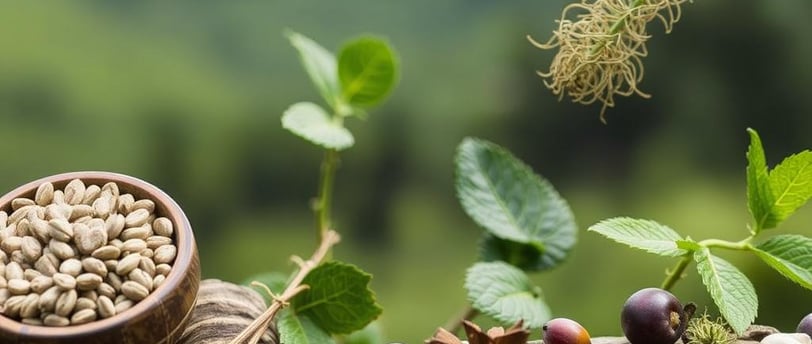Herbal Remedies for Boils: Nature's Approach to Healing
Blog post description.
🌿HERBAL REMEDIES


Boils, also known as furuncles, are painful, pus-filled lumps that form beneath the skin due to bacterial infections, often caused by Staphylococcus aureus. They can be uncomfortable and embarrassing, prompting many to seek immediate relief through conventional treatments. However, a growing body of enthusiasts is turning toward herbal remedies as a natural alternative for managing this issue. This article will explore various herbal options, their uses, and the science behind their effectiveness.
Understanding Boils
Before delving into herbal remedies, it's essential to understand what boils are. These skin infections typically occur when hair follicles become infected and can appear anywhere on the body. While most boils are harmless, they can cause significant discomfort and lead to complications if not treated correctly.
Common Symptoms of Boils
Red, swollen lump on the skin
Pain and tenderness at the site
Development of a white or yellow center filled with pus
Fever and malaise in severe cases
Herbal Remedies for Treating Boils
Several herbs have been traditionally used for their antibacterial, anti-inflammatory, and healing properties. Below are some of the most effective herbal remedies for managing boils:
1. Turmeric (Curcuma longa)
Turmeric is renowned for its powerful anti-inflammatory and antibacterial properties, primarily due to its active compound, curcumin. It can help reduce inflammation and speed up healing.
How to Use:
For topical application: Mix turmeric powder with water or coconut oil to create a paste. Apply it directly to the boil and cover with a bandage. Leave it on for several hours or overnight.
For internal use: Consuming turmeric in food or mixing it with warm milk can help bolster the immune system.
2. Tea Tree Oil (Melaleuca alternifolia)
Tea tree oil is an essential oil known for its potent antiseptic properties. It can effectively combat bacteria and may help facilitate faster healing of boils.
How to Use:
Dilute a few drops of tea tree oil with a carrier oil (such as coconut or olive oil) and apply it to the boil using a cotton ball. Repeat twice daily for the best results.
3. Echinacea (Echinacea purpurea)
Echinacea has been traditionally used to enhance the immune system and combat infections. It contains compounds that may help reduce the severity and duration of infections, including those of boils.
How to Use:
Echinacea can be taken in capsule form, as a tea, or as a tincture. For boiling or severe infections, consult a healthcare professional for the appropriate dosage.
4. Burdock Root (Arctium lappa)
Burdock root has detoxifying properties and is believed to help purify the blood, making it a good remedy for boils. It also has anti-inflammatory effects that can alleviate pain and swelling.
How to Use:
Burdock root can be consumed as an herbal tea. Boil the dried roots in water, strain, and drink once or twice daily.
5. Fenugreek (Trigonella foenum-graecum)
Fenugreek seeds are loaded with antioxidants and have antibacterial properties. They are known to promote healing and can be beneficial for treating boils.
How to Use:
Soak fenugreek seeds in water overnight. In the morning, strain and consume the water. Alternatively, make a paste from the soaked seeds and apply it directly to the boil.
6. Garlic (Allium sativum)
Garlic is another potent herb known for its antibacterial, antiviral, and antifungal properties. It can help fight the infection causing the boil and enhance the healing process.
How to Use:
Apply crushed raw garlic directly to the boil for about 30 minutes, or consume it daily in various forms to help fight infections from within.
Additional Considerations
While herbal remedies can be beneficial, it’s essential to keep a few things in mind:
Seek Medical Attention: If a boil does not improve with home treatment, becomes larger, or is accompanied by a fever, consult a healthcare professional.
Use Caution: Some individuals may have allergies or sensitivities to certain herbs. Always do a patch test before applying any substance to the skin.
Maintain Hygiene: Keeping the affected area clean and avoiding tight clothing can help support healing and prevent further infections.
Conclusion
Herbal remedies have been used for centuries to treat various ailments, including boils. While they can provide relief and promote healing, it's crucial to approach treatment with caution and awareness. Always consider consulting with a healthcare professional before starting any new treatment regimen, especially if you are experiencing recurrent boils or severe infections. As with any health concern, combining herbal remedies with a holistic approach, including a balanced diet and proper hygiene, can lead to the best outcomes.
